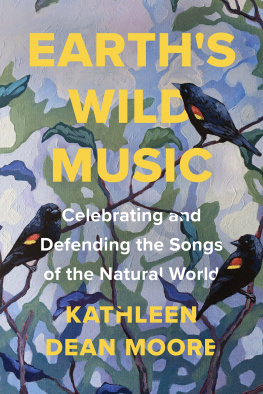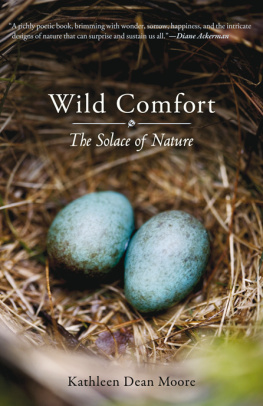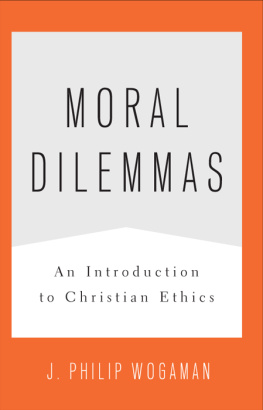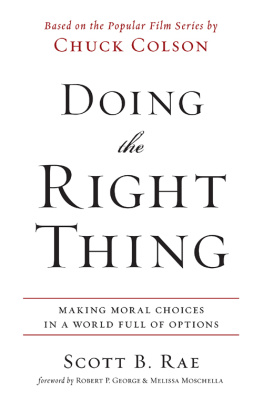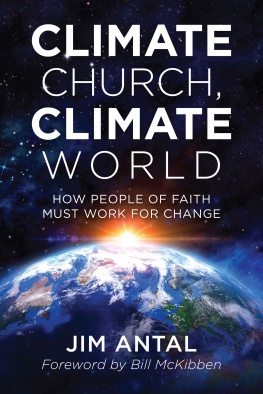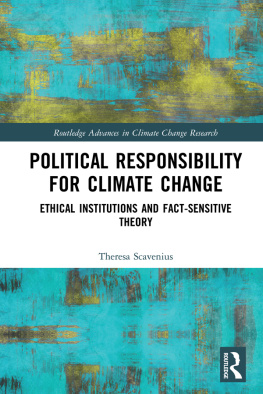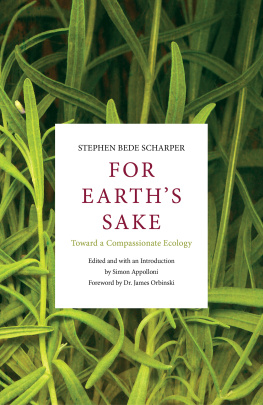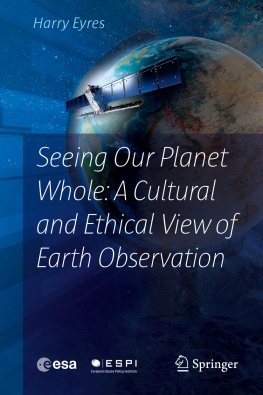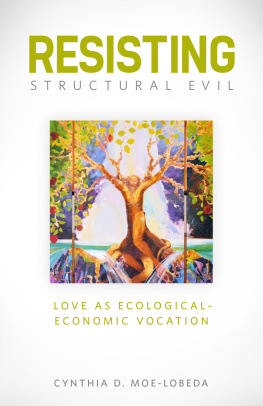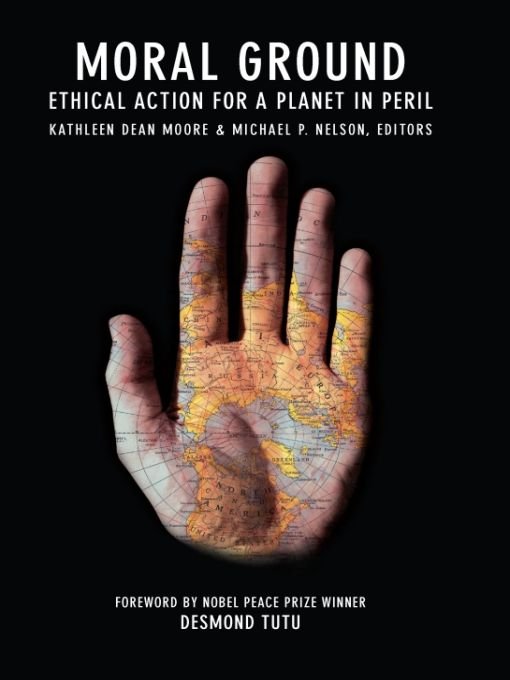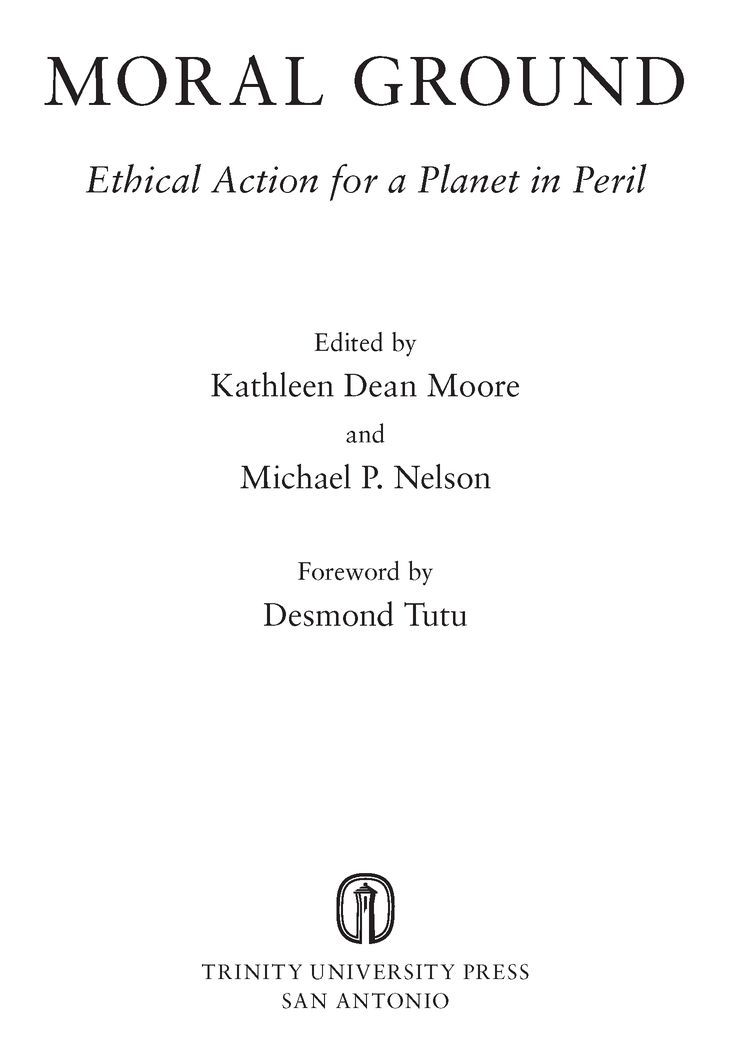Table of Contents
Carly Lettero, Research Associate
Carol Mason, Production Associate
Frank L. Moore, Information Manager
For Theo and Zoey
For Heather,
provider of unflinching and unwavering support of
this and every wide- and wild-eyed endeavor
The publisher gratefully acknowledges
the support of the Germeshausen Foundation
and the Kendeda Fund in the publication of this book.
Foreword
To the people of all the world:
The essays in this book tell us the moral ground we stand on. They are a clear call to action. We are called to understand that climate change is a moral challenge, not simply an economic or technological problem. We are called to honor our duties of justice, to prevent the enormities of climate change, as the price of the lifestyles of the privileged is paid by millions of poor people, in the loss of their livelihoods and their lives. We are called to honor our duties of compassion, to prevent the suffering of millions of innocent people, especially the hungry children.
Leading environmental scientists predict that as many as 185 million Africans will die this century as the direct result of climate change. Many more will face untold suffering in other parts of the world. As I write, famine is increasing. Flooding is increasing, as are the disease and insecurity caused by water scarcity around the world. Climate change is real. It has begun.
The countries that are the least responsible for causing climate change are paying the heaviest price. The average U.K. citizen produces nearly fifty times as much carbon dioxide as any citizen in the developing world. And in the United States the production of carbon dioxide is significantly higher. This is a serious injustice.
As an African, I urgently call on ordinary people in rich countries to act as global citizens, not as isolated consumers. We must listen to our consciences, not to governments who speak only about economic markets. These markets will cease to exist if climate change is allowed to develop to climate chaos.
We have a big problem to solve. Climate change is a global threat that will affect my generation surely, but will prove to have a devastating effect on my children, not to mention my grandchildren and great-grandchildren. All scientific prognoses show that the continent of Africa will be severely harmed if we do not act now. The consequences could be conflicts and instability, which we must avoid at any price.
Our experience in South Africa confirms that if we act on the side of justice, we have the power to turn tides. Industry, government, civil society, and you and Iwe can all make a difference. Raise your voice. I urge you, sisters and brothers, to work together with campaigners in the global south and call for strong climate change laws in your own countries in the north as well as internationally. Do not fly in the face of the poor by allowing the emissions produced by endless and unnecessary business flights to keep growing. Insist on an 80 percent cut in your national emissions and hold your governments to account.
In matters of climate change, as in all our lives, our obligation is clear: we must do unto others as we would wish them to do unto us.
Thank you for caring. Thank you for acting.
Archbishop Emeritus Desmond Tutu
INTRODUCTION
Toward a Global Consensus for Ethical Action
Kathleen Dean Moore and Michael P. Nelson
The key thing is the sense of universal responsibility; that is the real source of strength, the real source of happiness. If our generation exploits everything availablethe trees, the water, and the mineralswithout any care for the coming generations or the future, then we are at fault, arent we?
HIS HOLINESS, THE DALAI LAMA
The problems that we see every day in the markets represent a massive opportunity to stop and think where this is all heading. What sort of people are we?
HYLTON MURRAY-PHILIPSON,
Canopy Capital, UK
Its late autumn as we begin to write. Crows perch on the electric lines that connect the houses. A teenager swings his car into the driveway and opens the door, releasing a wave of music. The little girl who lives next door shuffles past wearing her mothers high-heeled shoes. Her mother sits on their doorstep in the slanting light of late afternoon, watching her daughter. In the next block, a neighbor adjusts his ear protectors and yanks the cord on his leaf blower. Students walk by, detouring into the street to avoid the roaring engine and the blast of leaves. There will be rain this evening and maybe snow by morning.
The scene feels odd, almost fictional, the way life goes on. It seems almost as if we were watching a herd of dinosaurs grazing on giant fern-trees, oblivious to the shadow of the asteroid that will strike Earth and forever change the conditions under which they will liveor die. A dinosaur lifts his head and hisses at another who is stripping a frond off the same tree. A mother bends her long neck to nudge the eggs nestled under her flank.
But there is no reptilian oblivion among the neighbors and the people passing by. Scientists have done a heroic job of alerting citizens to the world-altering dangers of cascading extinctions, climate change, and other environmental calamities. People know that we already approach tipping points where climate change will trigger irreversible alteration in the conditions under which we will liveor die. They know that by the terrible working out of a few wrong decisions, this generation, our own, will see the end of the Holocene era, when Earth achieved its greatest richness and variety of life, and the beginning of a new epoch of unpredictable change and loss. They know that what is about to hit us is a human creation and that immediate human action is all that can alter its direction, on the chance that calamity will hit the Earth only a glancing blow.
The neighbor switches off the leaf blower and begins to stuff dead leaves into a black plastic bag. The mother walks down the sidewalk to put a little coat on her child.
What will move people to act to save their beloved worlds? Clearly, information is not enough. What is missing is the moral imperative, the conviction that assuring our own comfort at terrible cost to the future is not worthy of us as moral beings.
This book is a call to that moral affirmation. It is a call to people to honor their moral responsibility to the future to strive to avert the worst consequences of the environmental emergencies and leave a world as rich in life and possibility as the world we live in. We have three immediate goals: (1) With the testimony in this book, we aim to demonstrate a global ethical consensus among the moral and intellectual leaders of the world that climate action is a moral responsibility, just as scientists demonstrated with the 2002 report of the Union of Concerned Scientists, a global scientific consensus that the climate crisis is real, dangerous, and upon us. (2) With the essays in this book, we aim to empower readers with a wide variety of arguments demonstrating that we are called as moral beings to environmental action, so that no matter their religion, their worldview, or their position in life, readers will find reasons heregood reasons, powerful reasonsto respond. (3) Finally, we call people to take themselves seriously as moral agents, to reclaim the right to live the lives they believe in, to live as people of integrityconscientious, compassionate, joyousand so to take away the ability of the powerful to destroy the Earth.


